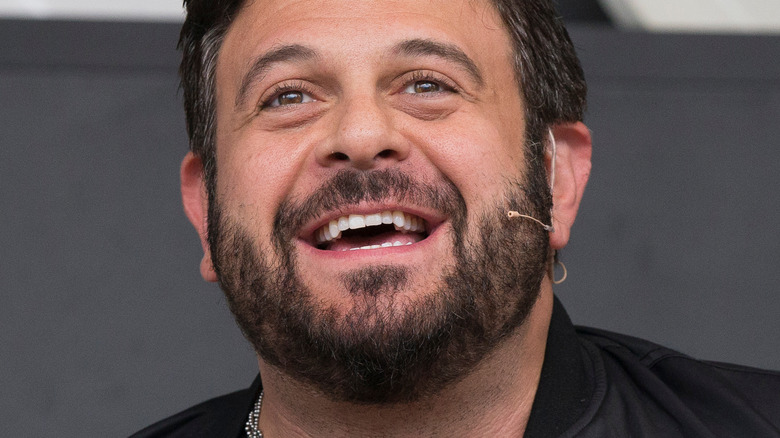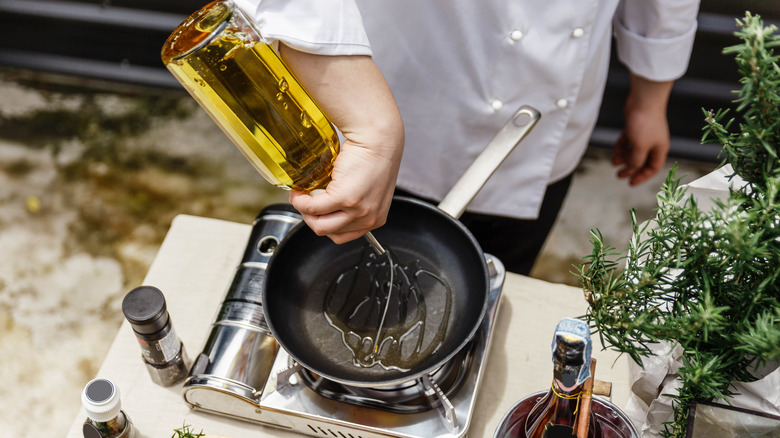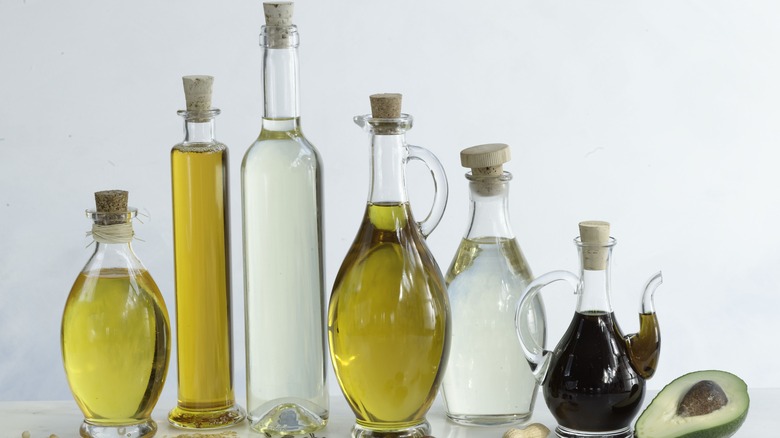When You Should Be Adding Oil To Your Pan, According To Adam Richman
Cooking with oil is a given for almost any dish made in a pan. But if you don't use the right kind of oil for your recipe, you could be setting your meal up for failure. From olive to avocado, each liquid fat has a particular set of guidelines to ensure you get the most out of its flavor and functionality. And with each option packing in a wide array of factors, including the oil's health quality and taste, it's important to know how to use each one.
Another aspect of cooking with oil to keep in mind is that you have to add it to the pan at just the right time. While you may feel fine adding your oil at any step in the process, Chef Adam Richman has a better idea.
With his years spent exploring the culinary scenes of various countries (per Brooks PR), the original "Man v. Food" host has a few tricks up his sleeve. And the chef has one especially memorable tip that could change the way you cook forever.
The secret to a better sizzle
Some of the best things take time, and patience is a virtue. And according to chef Adam Richman, that mentality applies to cooking oil, too.
Richman advises that whenever you cook, it's best to add oil after you've pre-heated your pan. Oil breaks down the longer it's exposed to heat, and per Home Cook World, adding it to the pan too early can leave your food coated in oil that's become rancid. As Richman shared with People, "Following this method, you'll use less oil, food will be less soggy, and you'll get a better sear."
According to New England Today, another reason you shouldn't add oil too early is that the surface of your pan changes as it heats, and microscopic lines begin to appear in the bottom. Meat will stick to the pan more easily as these lines close around it. Adding cooking oil to the pan later in the heating process creates a barrier so your dish doesn't stick.
The most popular types of cooking oil
You may be misusing your cooking oil and not even know it. According to MasterClass, the most popular cooking fat is extra-virgin olive oil, which is ideally used for cooking low- to medium-heat dishes. (Lighter versions of regular olive oil can withstand higher heat levels.)
Vegetable oil, another popular and affordable cooking oil, is mostly neutral in taste and smell and is best for dishes that require high heat, such as frying, explains Bon Appétit. Per MasterClass, another option is peanut oil, which is especially good for deep-frying dishes. Unlike vegetable oil, this oil lends a distinct peanut flavor.
And according to Bon Appétit, avocado oil is another better-for-you alternative to refined vegetable oil. Unlike extra-virgin olive oil, avocado oil can withstand temperatures up to 520 F. This makes it another ideal option for a cooking fat to keep on hand.


